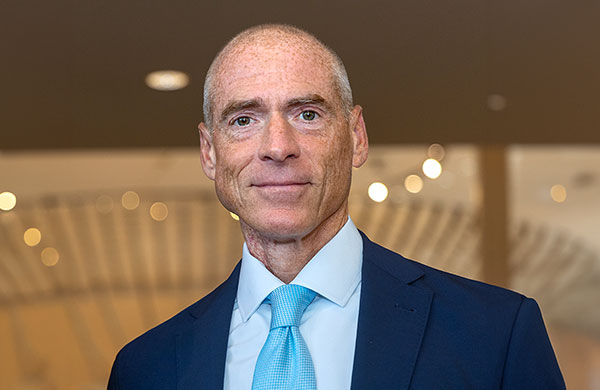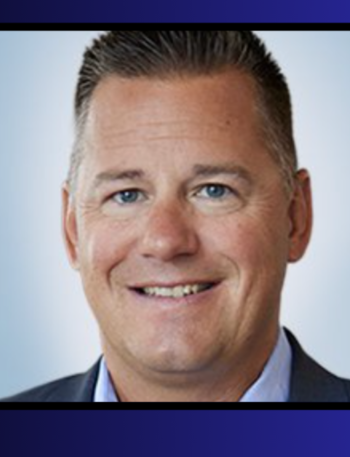- The Road to Success: Lessons from Alex Van Halen’s Journey
- Vince DeCrow and Van Spankeren Launches RISE Investments: Formed to Bridge Multi-Generational Wealth Management Gap
- First American Bank partners with InvestCloud
- Embracing innovation and empowering communities
- Paragon Capital Expands to Hong Kong Amid Booming Wealth Management Market
Listen to the full podcast.
With a rapidly aging workforce, evolving client expectations, and increasing competition from technology-driven solutions, financial advisory firms are at a crossroads. Many firms have scaled back or entirely eliminated training programs, leaving a gap in the development of new talent. At the same time, the rise of independent advisors and robo-advisory platforms has challenged traditional models of client service and growth. Against this backdrop, firms like Equitable are finding innovative ways to address these challenges head-on, blending the old-school values of mentorship and collaboration with modern strategies for growth.
Bạn đang xem: Training Talent for the Future of Wealth Management
In the most recent episode of The Tony Sirianni Podcast, Tony welcomed Jim Mellin from Equitable to unpack these dynamics. The discussion centered on strategies for growth—both organic and inorganic—and how Equitable is building a sustainable future for the industry by bringing in new talent, fostering mentorship, and creating a culture of success. Their conversation not only illuminated the challenges facing wealth management but also offered actionable insights into how firms can thrive in this evolving landscape.
The Challenge: Attracting and Retaining Talent
A recurring theme in the discussion was the aging demographic of advisors and the industry’s struggle to recruit younger talent. With many firms canceling training programs—such as Merrill Lynch’s previously robust system—it’s increasingly difficult to onboard and develop the next generation of advisors.
Jim recounted how he entered the industry right out of college. He credited his success to the expert training and mentorship he received early in his career. This experience has shaped Equitable’s approach to growth. The firm brings in over 600 new advisors annually, focusing not only on recruitment but also on robust training and development programs. Jim explained, “For us, it’s not just about the numbers; it’s about finding the right fit, building skills, and setting realistic expectations.”
The Importance of Structured Programs
The decline of structured training programs in the industry has been a factor in the shortage of next gen advisors. Skills and systems are hard to perfect when applied sporadically. As Jim notes, his firm’s onboarding process is a deliberate, ongoing effort that pairs new advisors with established professionals. This structure allows experienced advisors to assess compatibility over time, ensuring a good fit before formal partnerships are established.
Xem thêm : Wellington Management Launches First Interval Fund
“Ours is an apprentice business,” Tony added. “You don’t just learn the technical aspects—you learn by observing and being guided.” This approach, he argues, provides young advisors with critical insights into the nuances of professional conduct and work ethic, such as understanding client needs and committing to long hours.
With many younger professionals now accustomed to remote work, Jim expressed concern about the loss of in-person mentorship opportunities. “This is an apprenticeship profession, and it thrives on interaction and shared experiences,” he said. The pandemic underscored the importance of personal connections, both among advisors and with clients.
Organic Growth: Building from Within
Equitable’s growth model stands out for its focus on bringing in young advisors and creating an ecosystem where they can thrive. The firm’s average advisor age is 47, a full decade younger than the industry average of 58. This demographic shift reflects their success in attracting and retaining talent.
Jim highlighted the role of Equitable’s local leadership in supporting this growth. Every state has a dedicated local leader who recruits, trains, and mentors new advisors. These leaders also help established advisors expand their practices by identifying and integrating new talent. This model fosters a culture of collaboration and continuous improvement.
Inorganic Growth: Strategic Recruiting
Equitable’s growth isn’t limited to developing talent from scratch. The firm has also been successful in recruiting experienced advisors, often with sizable books of business. Tony observed that many of these advisors are drawn to Equitable because of its unique combination of independence and support.
Jim referred to this model as “supported independence.” While Equitable advisors operate with the autonomy of independent professionals, they also benefit from the infrastructure and resources of a larger organization. This balance appeals to advisors looking for a culture that fosters growth without sacrificing flexibility.
Addressing Succession Challenges
Another critical topic was succession planning, a pressing issue given the industry’s aging workforce. Jim emphasized that succession isn’t just about finding someone to take over—it’s about building a pipeline of talent and creating systems that ensure continuity.
Xem thêm : Apella Wealth Expands West Coast Presence with Addition of Young Wealth Management
Equitable’s team-based approach is particularly effective in this regard. By integrating new advisors into established teams, the firm creates opportunities for seamless transitions while also addressing gaps in expertise. For instance, a new advisor might specialize in 401(k) plans or estate planning, complementing the skills of more seasoned team members.
The Role of Culture in Success
Both Tony and Jim agreed that culture plays a significant role in driving growth. Jim noted that clients, advisors, and potential recruits can immediately sense the energy of an office. A vibrant, collaborative environment inspires confidence and fosters success.
Equitable’s emphasis on team-building extends to its approach to comprehensive financial planning. Many of the firm’s top-performing advisors operate like small enterprises, with specialized departments handling everything from employee benefits to risk management. This structure not only enhances client service but also creates opportunities for new advisors to contribute meaningfully from day one.
A Bright Future for Financial Advisory
The conversation concluded on an optimistic note. Both Tony and Jim believe the financial advisory industry’s best days are ahead. With people living longer and facing increasingly complex financial situations, the demand for expert advice continues to grow.
However, meeting this demand will require a concerted effort to attract and develop new talent. Firms like Equitable are setting an example by investing in training, fostering collaboration, and creating environments where advisors of all experience levels can thrive.
As Jim put it, “Growth isn’t just about numbers—it’s about building capability, fostering engagement, and creating opportunities. And that’s what we’re committed to doing every single day.”
Listen to the Tony Sirianni podcast on SPOTIFY or APPLE.
Nguồn: https://staredecisis.quest
Danh mục: News





